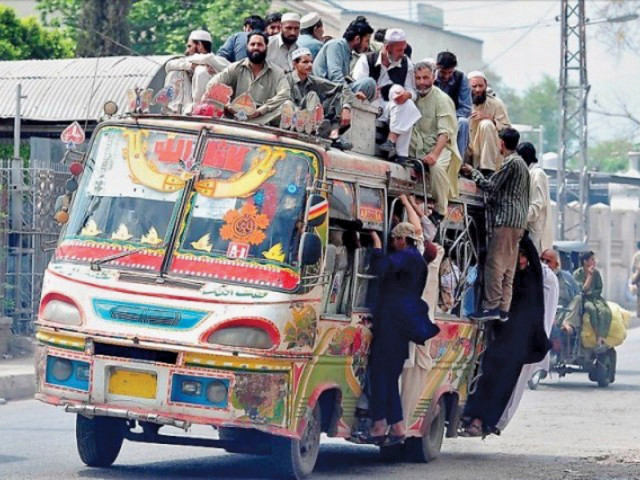Can Sydney’s transportation system make its way to Karachi?
It can never materialise in Karachi unless there is a realisation of the need to plan for the common man

Sydney offers its residents a people-friendly transportation system while Karachi still has a long way to go. PHOTO: FILE
Writing this article from Sydney, it is interesting to see how the city manages its transportation. First of all, the city is fulfilling its basic requirement of having a public mass transit system that covers the entire city through a combination of public buses, trains and ferry services that are interconnected both in terms of physical linkages and payment of fares.

All these transportation modes run on time and ensure accessibility to disabled persons. The route and timing charts are placed at all bus stops and clearly show which bus will come at what time. In addition, walking and cycling is encouraged. The moment a pedestrian steps on a zebra crossing, the automobile has to stop.
In school zones, during school timings, if any driver violates the 40km/hr speed limit, it constitutes as a ‘jail-able’ offence. At certain sections along busy motorways, you cannot press the horn if there are sensitive flora and fauna along the roadside. These are just some examples of how the transportation system in Sydney helps in making the city a more environment and people friendly, and less accident-prone city.
Closer to home
Karachi was also served once by an efficient and clean transportation system, which has seen a continuous downslide in its fortunes right from the mid-1970s, when the Muhammadi Tram Service shut down. The public bus service started to exhibit a decline in its quality while, on the other hand, population levels soared, especially among people belonging to low-income families that needed a well-functioning public mass transit system.
Since then, every effort at introducing a public mass transit system has been thwarted by a powerful transport mafia and continuous frictions between the various tiers of governance over the control of services. The Karachi Circular Railway was derailed in the late 1980s and has since been successfully sidelined. In the 1990s, a short-sighted, money generating scam of providing easily accessible car loans resulted in a sky-rocketing number of private automobiles. Now low-priced motorcycles are resulting in the development of a similar phenomenon.

Even infrastructure development focuses on facilitating private automobile users. This is most apparent in the rapid construction of flyovers. Land use violations, lack of parking facilities, and ineffective regulation of vehicular emissions are aggravating this massive crisis even further.
Can Karachi be like Sydney?
A transportation system similar to the one in Sydney can never materialise in Karachi unless, at a larger and more holistic level, there is a realisation of the need to plan for the common man. We need to find a way to break the well-entrenched and debilitating ‘nexus’ between the corrupt government officials and institutions, the self-servicing elected officials, the informal mafias to name a few of the more important stakeholders involved, who feed unjustifiable excuses such as a lack of finances, management models and access to technology.
While we wait for that nexus to break, for the petty vested interests to disappear, the citizens of Karachi will continue to languish on the top of overflowing, ill-maintained mini and large buses. They will continue to face death every time they cross the road, will continue to consume toxic emissions of adulterated fuels, and will continue to be stuffed in the can of sardines that we call Qingqis Chinquis.
The city administrators of Sydney have not been transported from an alien world. They just happen to have the interests of the people and the environment they serve in their hearts and minds.
The writer is an urban planner and runs a non-profit organisation based in Karachi city focusing on urban sustainability issues
Published in The Express Tribune, January 19th, 2015.



















COMMENTS
Comments are moderated and generally will be posted if they are on-topic and not abusive.
For more information, please see our Comments FAQ